Placing a carpet in the kitchen might sound unconventional to some, but it’s an idea that has been gaining traction. A kitchen carpet can add warmth, color, and texture to the room but also comes with its own challenges.
In this article, we’ll explore the pros and cons of having a carpet in the kitchen to help you decide if it’s the right choice for your home.
The Advantages
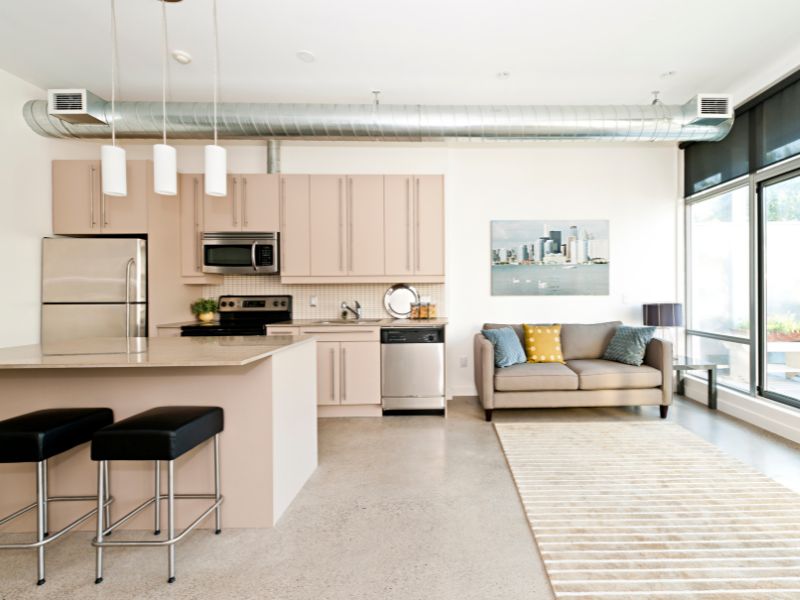
Aesthetic Appeal
A carpet can dramatically alter the ambiance of your kitchen, making it more inviting and cozy. With countless designs, patterns, and colors available, you can find something that complements your existing décor or serves as a bold centerpiece.
Comfort Underfoot
Standing on hard surfaces for extended periods can be uncomfortable. A carpet can provide a cushioned surface that relieves the pressure on your feet and back, which is particularly helpful for those who spend a lot of time cooking or doing dishes.
Safety
Slipping on wet or oily floors is a genuine concern in kitchens. Carpets can offer better traction and reduce the likelihood of accidents.
Noise Reduction
Hard floors can amplify noise, making your kitchen less pleasant, especially when it’s bustling with activity. Carpets absorb sound, offering a quieter cooking and dining experience.
The Disadvantages
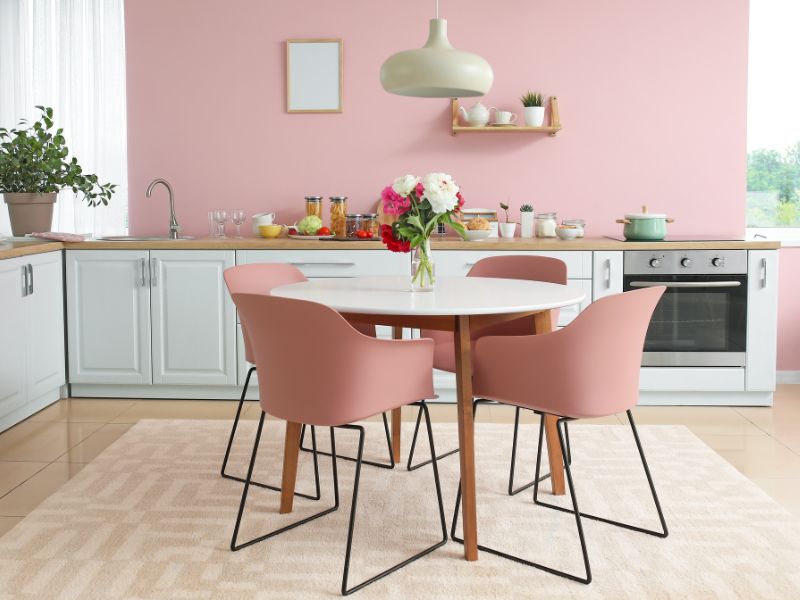
Hygiene
The kitchen is a hotspot for spills, crumbs, and grease, quickly making a carpet unsanitary. Unlike tile or hardwood floors that are easy to mop up, carpets require more cleaning effort and may harbor bacteria.
Maintenance
Keeping a kitchen carpet clean can be labor-intensive. It may need regular vacuuming and occasional deep cleaning, which adds to your list of chores.
Reduced Resale Value
Not everyone appreciates the look or functionality of a carpet in the kitchen. If you’re considering selling your home, this could be a turn-off for potential buyers, affecting the property’s resale value.
Allergies
Carpets can trap allergens like dust and pollen, which could exacerbate allergies for some individuals. This is an important consideration in a room like the kitchen, where food is prepared.
How to Choose the Best Material for Kitchen Carpets
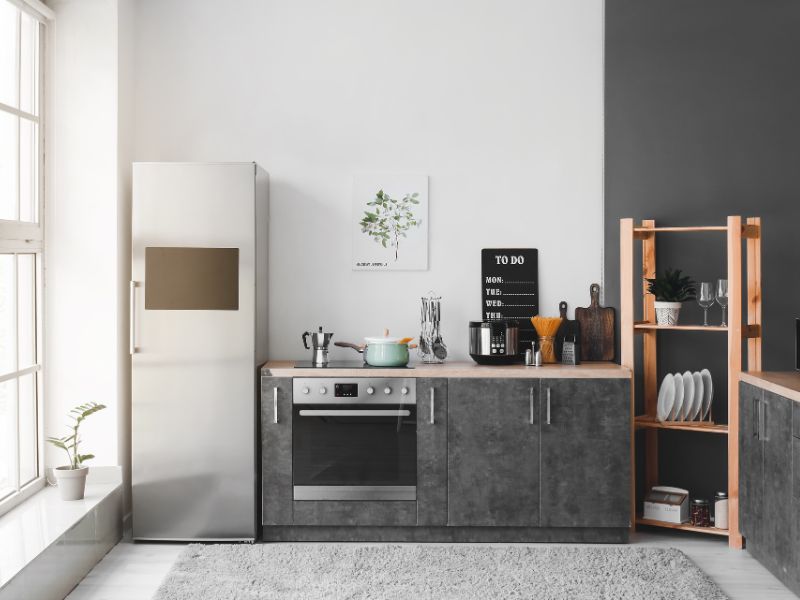
Choosing a carpet for your kitchen isn’t just about picking a design that complements your decor; the material also plays a crucial role.
Given the unique challenges presented by a kitchen setting—such as spills, crumbs, and high foot traffic—the material needs to be both durable and easy to clean.
Here are some factors to consider when selecting the best material for your kitchen carpet.
Consider Durability
- Nylon: Known for its resilience, nylon is a robust synthetic material that can withstand heavy foot traffic and resist wear and tear. It’s a practical choice for busy kitchens.
- Polypropylene: This synthetic fiber is stain-resistant and can handle moisture well, making it another good option for kitchens.
- Wool: While a luxurious and durable option, thread requires more care to keep it clean and can be expensive. It’s less ideal for high-moisture or spill-prone areas.
Maintenance
- Cotton: Easy to clean and often machine-washable, cotton rugs are convenient but may not be as long-lasting as synthetic fibers.
- Jute and Sisal: These natural fibers are durable but challenging to clean. They may also absorb stains and odors.
Comfort
- Microfiber: Soft and comfortable, microfiber is a good choice for those who want a plush feel underfoot, but it might require more frequent cleaning.
- Chenille: Known for its ultra-soft texture, chenille is comfortable but can be a magnet for dirt and debris.
Aesthetics
- Silk and Viscose: These materials offer a luxurious look and feel but are not advisable for a kitchen due to their delicate nature and difficulty in cleaning.
- Seagrass: Offers a unique, textured look but is not as soft underfoot. It is also less stain-resistant than synthetic options.
Top 5 Ideas for Carpets in Kitchens
If you’ve weighed the pros and cons and decided that a carpet is a good fit for your kitchen, the next step is choosing the right type. The options are as diverse as they are functional, offering a range of styles, materials, and sizes to meet your needs.
To help you navigate the choices, here’s a curated list of the top 5 ideas for carpets in kitchens, each with unique benefits and best-use scenarios.
Washable Area Rugs
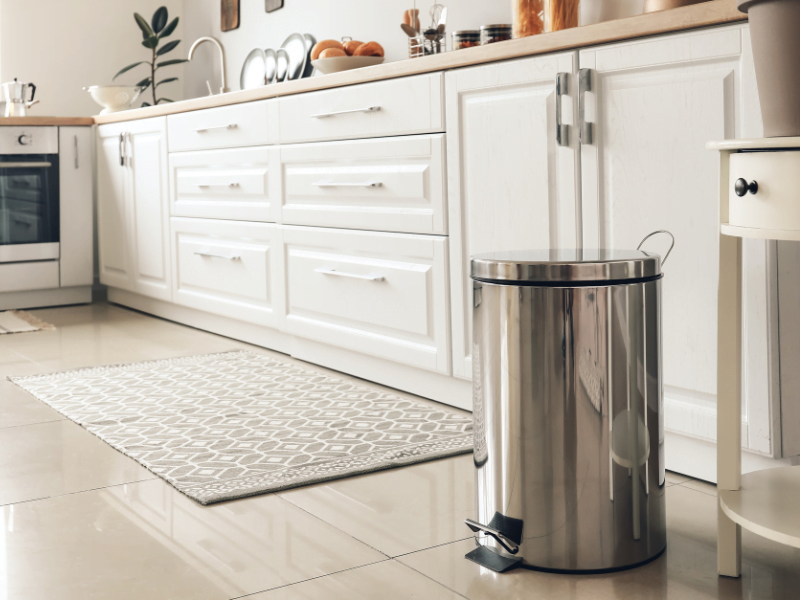
These are smaller rugs that you can easily remove and wash. Designed to handle spills and dirt effectively, they’re perfect for placing in high-traffic areas like in front of the sink or stove.
Benefits
- Easy to clean
- Provides comfort underfoot
- Available in various styles and patterns
Best for: Those who want the comfort of a carpet without the upkeep challenges.
Anti-fatigue Mats
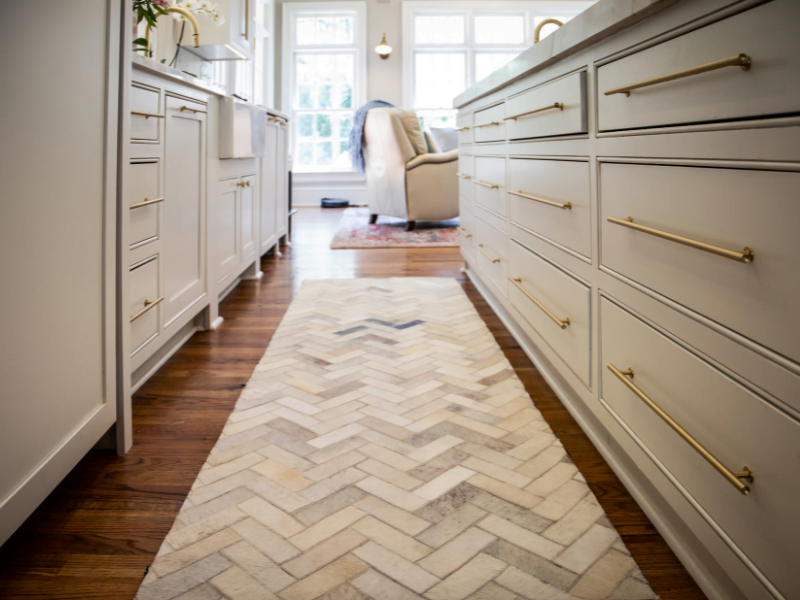
These are designed to relieve the pressure on your feet and back, ideal for people who spend long hours in the kitchen.
Benefits
- Ergonomic design for better comfort
- Usually has a slip-resistant bottom
- Easy to clean
Best for: Individuals who prioritize comfort and safety in the kitchen.
Natural Fiber Rugs
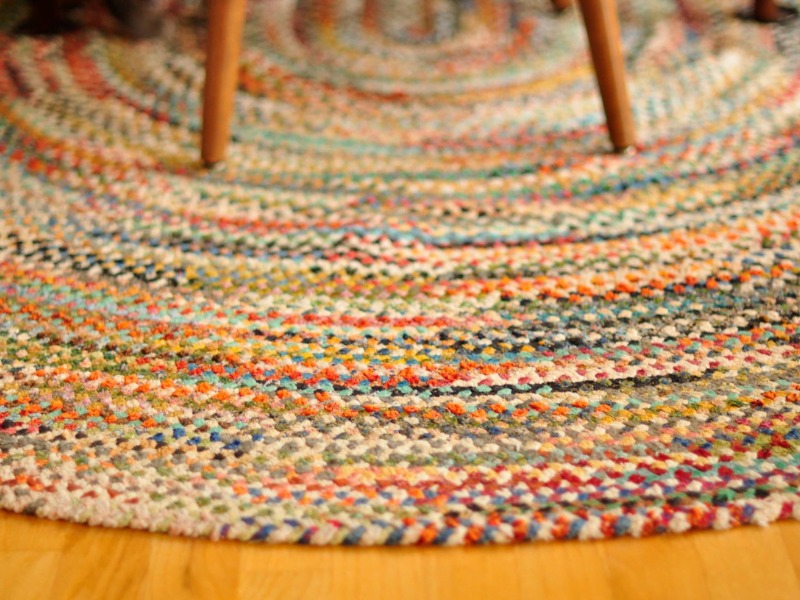
These rugs are made from materials like jute or sisal and offer a rustic, earthy look.
Benefits
- Eco-friendly
- Adds a natural, textural element to the kitchen
- Durable
Best for: Those who prefer sustainable and natural décor elements.
Runner Carpets
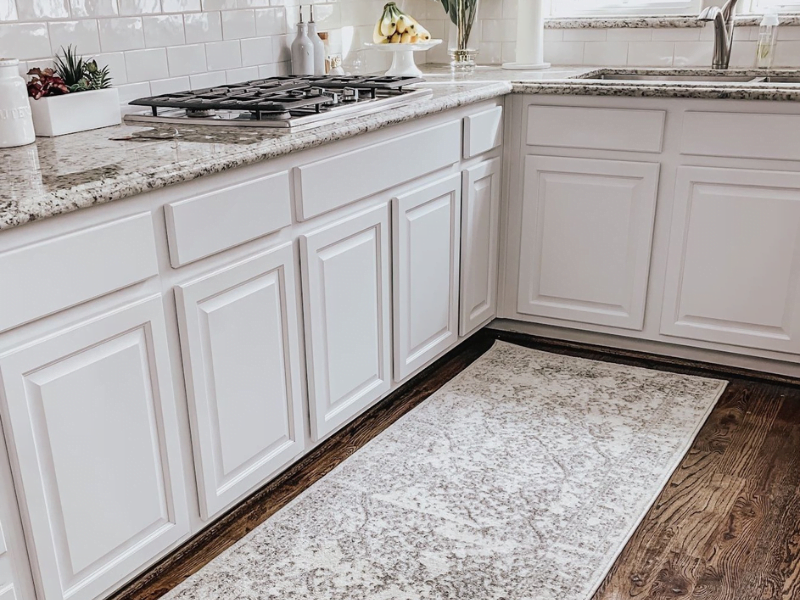
These are long, narrow carpets ideal for galley or elongated kitchens. They add a linear element that can make the space look larger.
Benefits
- Enhances the visual flow of the kitchen
- Can match or contrast with existing décor
- It provides a continuous, comfortable path
Best for: Homes with longer, narrower kitchen spaces.
Vintage or Heirloom Rugs
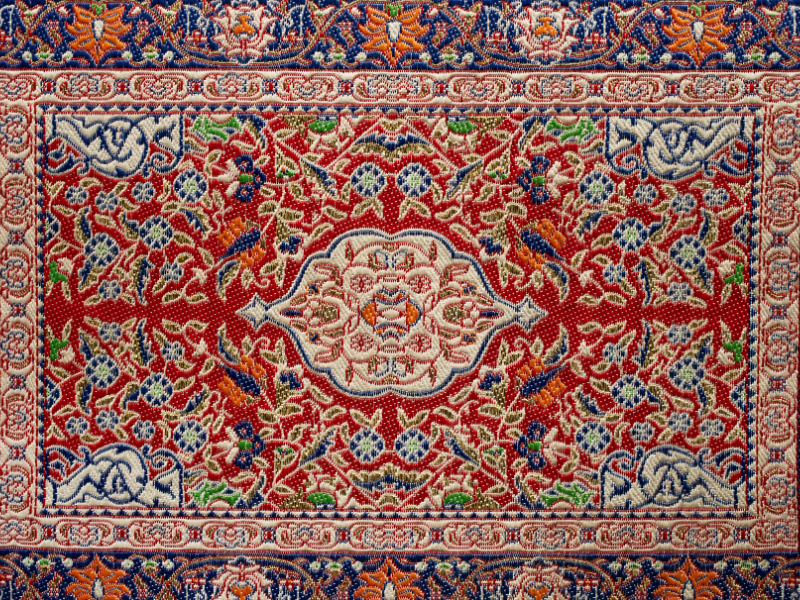
These are carpets with traditional or historical designs, often passed down through generations or collected from different parts of the world.
Benefits
- Adds character and a sense of history to your kitchen
- It can be a conversation starter
- Unique, one-of-a-kind designs
Best for: Those who want to infuse their kitchen with personality and nostalgia.
Putting a carpet in your kitchen involves balancing aesthetics, functionality, and maintenance. This guide aimed to simplify that choice by exploring key considerations, offering carpet ideas, and answering frequent questions.
Ultimately, the right decision hinges on your individual needs and lifestyle, equipping you to enhance your kitchen’s comfort and style.

